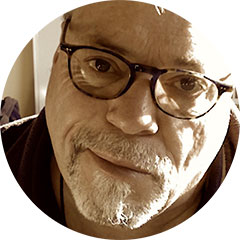
It is one thing to be inspired, however it is quite another to put it into practice. Because unlike being an employee, there is no 40 hour week, overtime, sick pay, holiday pay, public holidays, PAYE, Christmas bonus or even free tea and coffee. There is no employer contribution to your KiwiSaver, and no one else picking up the tab for your ACC. And if you need new tech, then it comes out of your pocket and not an employers. But perhaps most importantly, their is no demarcation between work and life – they have become intrinsic. You can wake up in the middle of the night, and discover that you are still at work, and it is you that has to budget for your non-productive times – being on holiday being the obvious one. And who actually stops thinking about work, even when they are on holiday? Chances are you’ve combined it with a business opportunity for tax deduction purposes if nothing else.
Now on a practical level, most of this is dealt with in your hourly rate combined with budgeting skills and allocations to different accounts. But on an emotional level, it’s a whole other ball game. Because being master and captain is a full time job in its own right – business owners don’t get the luxury of being able to compartmentalise – not at our level anyway. No where is this more evident than if you’re an employer on holiday, for the machine is still running, and staff, plant, admin and legal responsibilities are still present. Being a director might look good on your business card, but with increased importance comes increased responsibility, and ultimately liability. Even when your not there.
So how do we deal with this on an emotional level? How do we establish some form of demarcation between professional and personal, work and play, public and private, business and family? Well, I have recently discovered the art of journaling, and the sheer pleasure derived from writing down what ever comes into my mind at any given moment. Using a spiral-bound note book and an old fashioned fountain pen, I have begun to journal – and not with a computer or tablet. Part of the separation is also the separation from tech, and as all my work is computer based, I use a pen and paper to reinforce the demarcation. Sitting on my deck under an umbrella at our outdoor table, with a coffee and the birds singing in the trees, is a whole world away from an office, a desk, a computer and a phone. Watching the birds eating bread I’ve put on the lawn, and feeling a bit of wind on my face, is far more conducive to my demarcation than trying to think outside the box while I’m still sitting in it. It is essential to remove the familiar in order to familiarise ourselves with the new, to shut one door in order to open another. It takes a new environment to both appreciate and yet distance ourselves from the old one, a change in a work habit to establish a new discipline. For I am learning that journaling is a discipline, with much of its power and pleasure being derived from its minimalism and rawness.
By introducing myself to a whole new world, I have been able to begin a process which allows me to be better at coping with the old one, a private world from where I can remediate the stresses and parameters of the public one. Writing it down also gets it out of my head – and I’m a head-case at the best of times. So getting it on paper not only stops you from having to keep it in front of you all the time in case you forget it – and here the analogy of a computers RAM and hard-drive work well – it allows you to look at it more objectively and sort through it all. Start journaling – you’ll be amazed at the difference it makes.







Leave A Comment